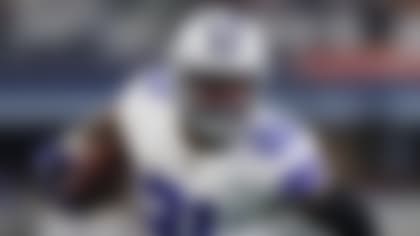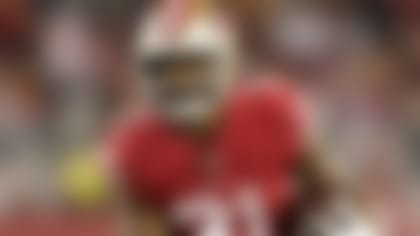The offseason is done. You've studied all the stats you could find. You read fantasy football advice columns until you started mumbling ADPs in your sleep. You did so many mock drafts that you may have selected every offensive skill position player in the league. By the time draft day came around, you felt confident and you crushed it.
OK. Now what?
Now we enter the regular season. The whole point of this exercise to begin with. You didn't think it all ended after the draft, did you? There's a world in which that can technically be true, but we're not ready to talk about Best Ball leagues just yet.
With all apologies to G.I. Joe, drafting is half the battle. The other half is managing your roster over the course of four months. Adam Rank gave you a crash course on the basics. But I'm here to dive a little deeper to give you some tips and tricks to help keep your fantasy roster looking strong.
Waiver Wire Strategies
If you haven't yet learned what the waiver wire is or how to use it, smash this link, then come back to me. I'll wait.
Got it? Good. Let's move on.
One of the primary uses of the waiver wire is to replace injured players. If one of your key players gets hurt, your first priority should be to find that player's backup on the wire. But you don't just have to wait for an injury to one of your players. When misfortune inevitably strikes an opponent's roster, you can try to grab one of their insurance options. Either you'll end up with a player you may be able to start or you can have leverage if one of your league mates wants to make a trade.
After a couple of games, you may learn which players or positions on your team aren't performing as you'd hoped. You can try to find help on the wire to replace guys who aren't getting the job done. There's using the waiver wire and then there's using the waiver wire wisely. (Say that five times fast.) The first trick to discern a shiny object from a true diamond in the rough. Just because a player has one big week doesn't always mean you should rush out and spend a waiver claim on him.
Is that player a normal starter or is he in position to play a lot? Even backups can have great days. But if that player doesn't play regularly or get a steady amount of weekly touches, that huge day could be nearly impossible to replicate.
Speaking of replicating, it doesn't hurt to look at the schedule when you're considering whether to add a particular player off the waiver wire. If the next several opponents offer bad matchups, it might be worth thinking twice before using your waiver priority -- especially if you already have doubts.
Trades
This is where things get a little advanced. Trading is an excellent way to strengthen your roster. The problem is that there is no sure thing when it comes to making or receiving trade offers. Everyone values players differently, so what might seem like a fair offer to you could sound ridiculous to someone else.
Here's the first thing to remember: Don't get too caught up in who "won" the trade. The idea of trading players in fantasy football (or real football, for that matter) is to make your team better. If you think that your lineup is stronger after the deal is completed, then you did well. If it's not ... well, then you didn't.
If you're going to make a credible trade offer, the best operating principle is to find a trading partner who is weak at a position where you are strong -- and vice versa. Put another way, if you have a lot of running backs, but are lacking at wide receiver, find a team that is strong at receiver but could use some RB help.
From here, you can get into all sorts of permutations. Do you trade players straight up one-for-one? Or do you consider dealing multiple players? That part is up to you and the person you're negotiating with. A good rule of thumb is to shoot for the moon -- make an offer for the players you'd most like to have and work backward from there. Hopefully, you and your cohort can meet in the middle on a deal that likely works for both of you. That's often easier said than done. But if this was easy, everyone would be a champion.
Good luck to you this season. As long as you're not playing me.










